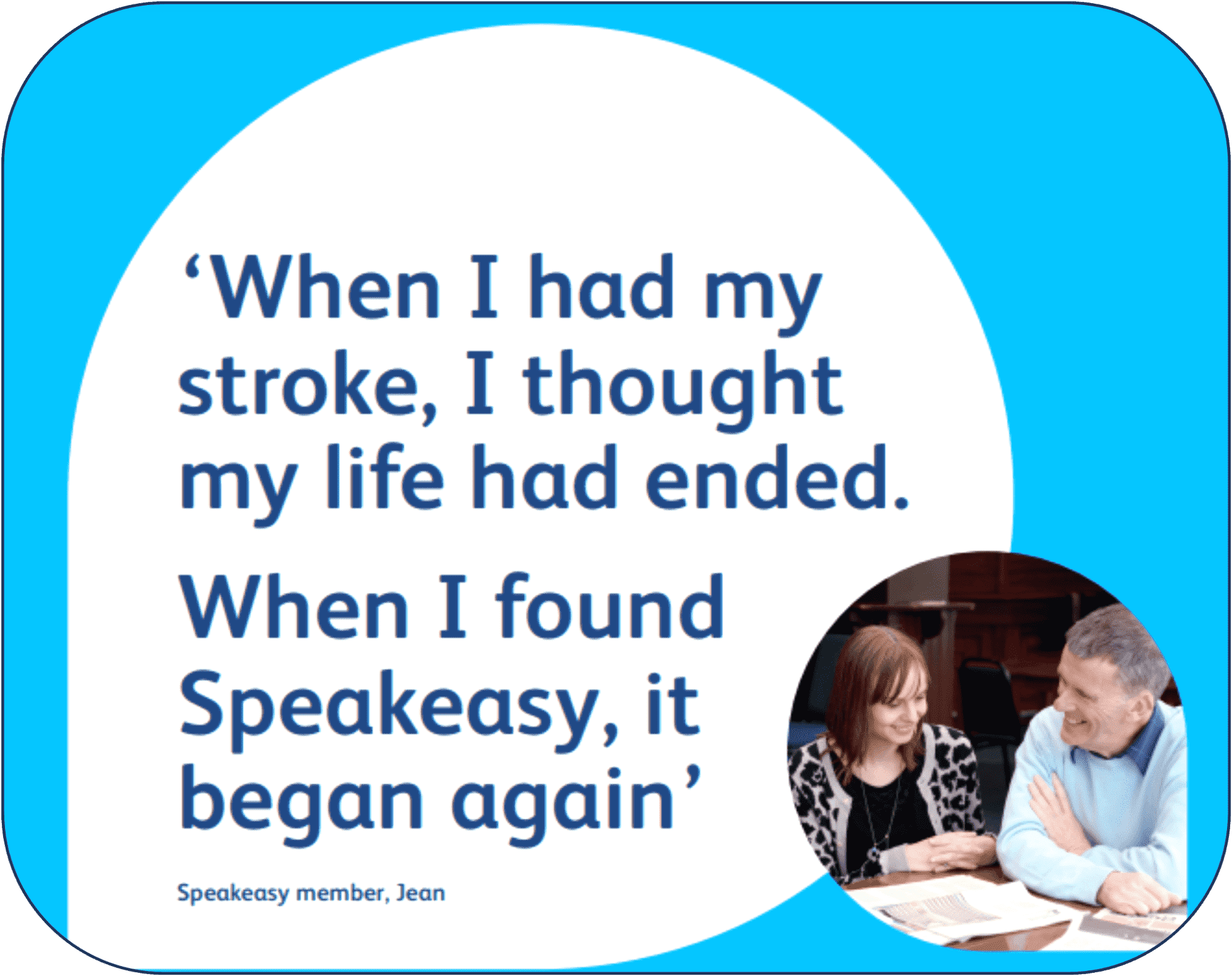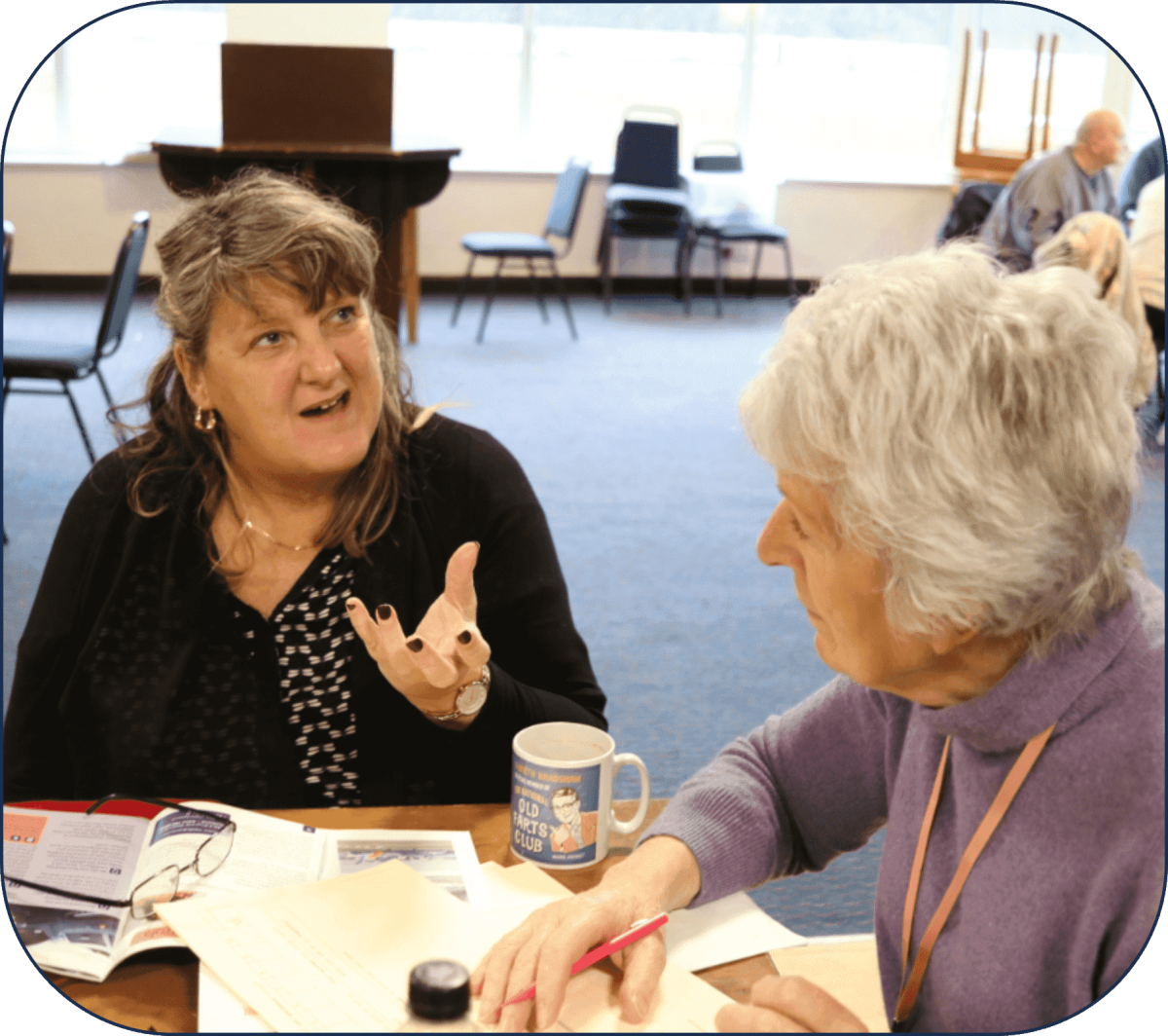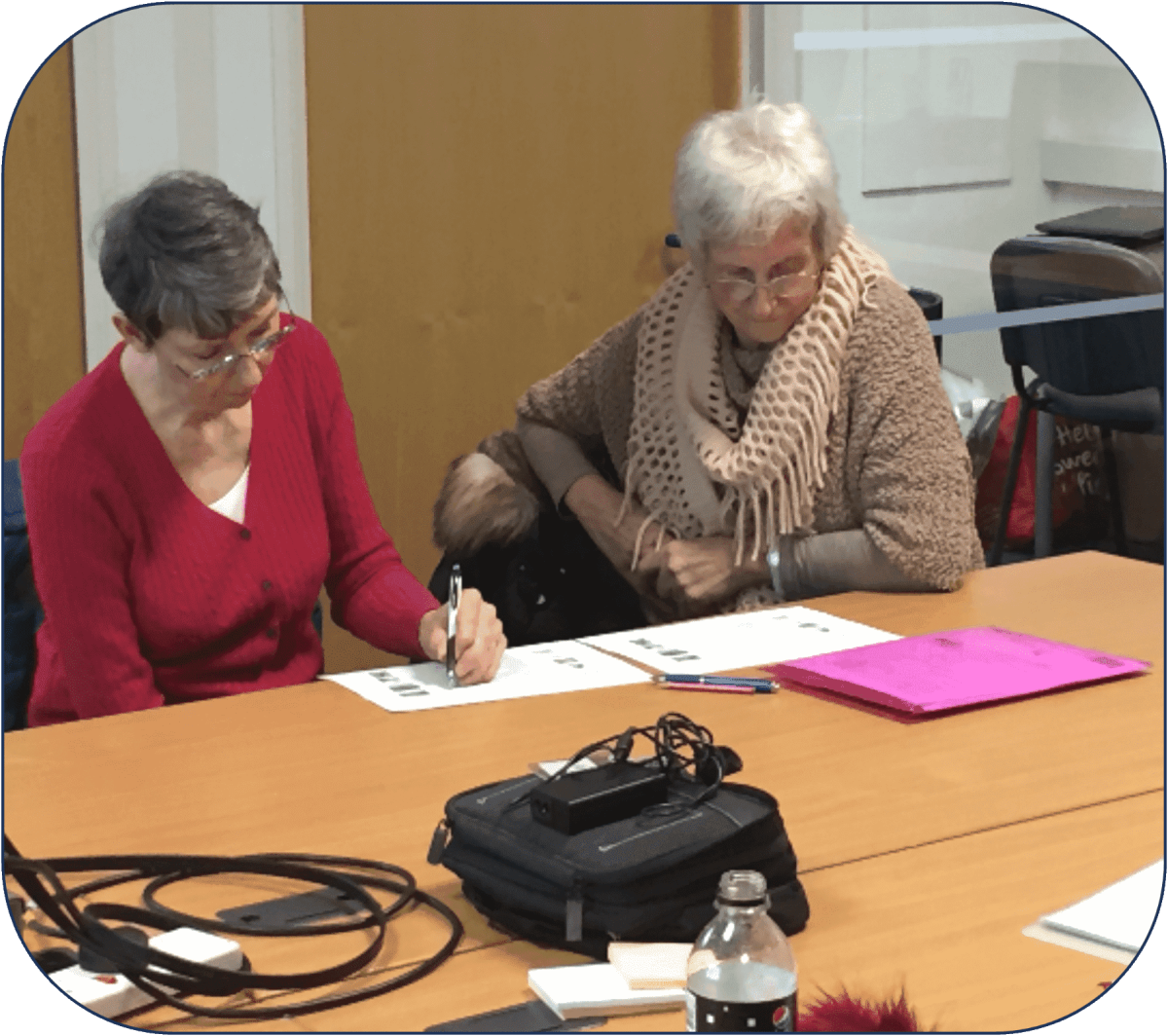
New to aphasia?
Few people have heard of aphasia and, particularly if you have it yourself, it can be confusing to make sense of it. Previously known as dysphasia it is an umbrella term for a range of communication difficulties which affect the ability to use speech, to understand what other people say, to read, write or use numbers. Everyone experiences it differently and the impact of aphasia on a person’s life is very individual too. People can’t join in with things they previously found easy – ordering a coffee, chatting with friends in the pub, reading a birthday car, online banking,… the list is endless. It can cause people to lose their jobs, their friends, their role in life, it can rob people of their identify.
When people find out they have aphasia they should see an NHS speech and language therapist who can help a person and their family to understand their pattern of aphasia and what might help, and to receive some therapy. Unfortunately, for many people this NHS help can be limited and of short duration. But there are things that can be done to help and at Speakeasy we know that although it is important to start therapy as soon as possible, improvements can go on for many years.
Many people with aphasia have had a stroke and their help initially should come from a specialist team of stroke specific professionals, including a speech and language therapist. Other causes include such brain damage as head injury, encephalitis or tumour. A particular type of aphasia (Primary Progressive Aphasia) is rare but is a form of dementia that starts with challenges with language. The type of help for this aphasia is different from other types but Speakeasy can help here too.
Therapy for aphasia focuses on understanding more about the pattern of aphasia and the impact. Then with this greater understanding the person, their families and the therapist develop a pattern of therapy activity assisting a person to work towards their own goals. The activity will include lots of exercises for neurological stimulation working on the individual challenges and building on strengths. Therapy may include using computers and apps to practice skills; it is important that a speech and language therapist sets the right exercises for a person’s particular needs.
Speakeasy is part of the long-term support for people and families affected by aphasia. We can help at all stages – the early days can be about understanding more about what has happened, help for the families, or what might be expected in the journey ahead. Our speech and language therapists and staff with aphasia can help deliver open-ended therapy and support which builds on and develops gains made in the NHS therapy. We are here for people in the long term.

Families and friends are important too
Communication happens between people and there is much that the family can do to help. Speakeasy staff can help families to understand the pattern of aphasia and how to develop strategies that are helpful. There is much that can be done to improve conversations with someone who has aphasia, our staff are highly skilled at making the necessary adaptations and we regularly run training sessions (face to face and on line) to share what we know. Learning new skills to help someone manage a new health need is common – giving medicines, support for home medical tests etc, so learning different communication skills is simply a different aspect of what families need to do. Our advice to families is that this communication training can make a significant difference in living with aphasia in the family and we strongly encourage people to take up the offer.
Aphasia is often accompanied by a host of other issues such as loss of confidence, low mood, memory issues, poor concentration and high fatigue. Speakeasy can help with managing these too.
Top tips for having a conversation with someone who has aphasia
- Slow down and don’t rush
- Say one thing at a time
- Shut out background noise
- Don’t interrupt
- Don’t fill in words unless you are asked to help out
- Using pen and paper for drawing and writing simple words can help your message
- Check that you both understand the conversation
- Use any way possible to communicate
The Speakeasy training can help you understand how to put these tips into practice so that you too can become a skilled communication supporter.
